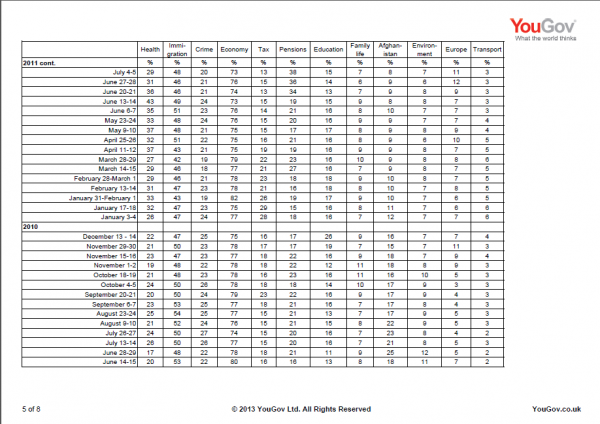Perhaps you hadn’t noticed, but it’s been raining a bit. Well, a lot actually. In fact, unless you lived in a sandbag hut with no television, radio or social media access, it’s very unlikely that you hadn’t noticed.
This week’s PMQ’s tackled the issue with a predictable ‘blame-game’ format. Ed Miliband blasted that ‘investment in flood defences is not happening’. The Prime Minister retaliated, citing Departmental spending increases of £0.2bn in the last four years and pledged that ‘money is no object’ for helping the UK’s flood victims. The problem is, the UK storms have exposed wider problems in UK policy-making and left the Government drowning in a public storm of its own.
So why has this issue been neglected for so long, and what does it say about the policy priorities of today’s politicians?
The problem is two-fold. Firstly the Government is still in the throngs of a monumental global economic downturn. And the second is that the combination of a fragile economy, large budget deficit, and a Government determined to make tough budget cuts to rebalance Britain’s books doesn’t leave much room for proactive policy-making.
Let’s start with the economy. It doesn’t matter that the UK economy is growing at the fastest rate since 2007. On the ground, the Labour Party’s new slogan of a ‘cost of living crisis’ compounds public demands for the Government to address rising living costs. So, energy and welfare become big public priorities; the Government duly plonks them right at the top of the agenda.
Then there’s the headlines screaming about a UK A&E crisis, shocking levels of care, nursing shortages, and a ‘broken NHS’. So they ringfence the healthcare budget. Add to the list international poverty, the Syrian crisis, and the Government’s commitment to reforming UK education. Cue budget ringfencing for Education and International Development. That means less Departmental budgets needing to save the same overall figure.
Some departments like the Home Office and Defence are electorally tricky to cut money from, handling issues high on the public agenda such as immigration (the number one issue for voters in a recent YouGov poll), policing and crime, and national security. Sending troops in to help the flood relief effort will make future defence cuts even less publically palatable.
The Government is being pushed and pulled in all directions by an increasingly frustrated public. New public spending announcements are scrutinised; new budget cuts instantly decried. So to balance these interests with deficit reduction pledges, the Government must giveth and the Government must taketh, in the least controversial ways possible. All whilst trying to secure an election victory in 2015. Add to the mix that they are operating within the confines of a coalition where both parties are pulling each other to pieces over spending priorities, and it becomes clear how Environmental spending silently slipped down the Government’s agenda.
The hard, uncomfortable truth is this; out of all the Departments, until a natural disaster on this scale happens the Environment is not an issue at the top of the public’s (and thus the Government’s) agenda.
Just look at a recent YouGov poll on ‘the most important issues facing the country at this time’. Until this month (when the Environment suddenly jumped up to 5th place) the Environment typically sat between a miserable 6 and 8% in terms of perceived national importance. So as long as Brits don’t have to swim to work, or need skis to get to their car, the Environment is just not a vote winner.

For Government officials scrabbling to make savings, DEFRA is therefore a pretty attractive candidate for cuts. Yes, the Tory vote is signifcantly rural, but this is a Coalition, and compromises were needed. So to save the NHS, improve Education, and reduce the cost of living, all at the same time as reducing a vast national defecit… well, it looks like sand bags are out.
No doubt the Daily Mail will continue to run petitions to reallocate funding from foreign aid spending to flood relief, and headlines will continue to batter the Government over spending priorities.
But whilst the economy remains so fragile, and with only 15 months until the next general election, the Government will remain forced to trade proactive policy-making for reactive damage-control policies, and the next flood/snow/heatwave-related disaster will sadly be just around the corner.




